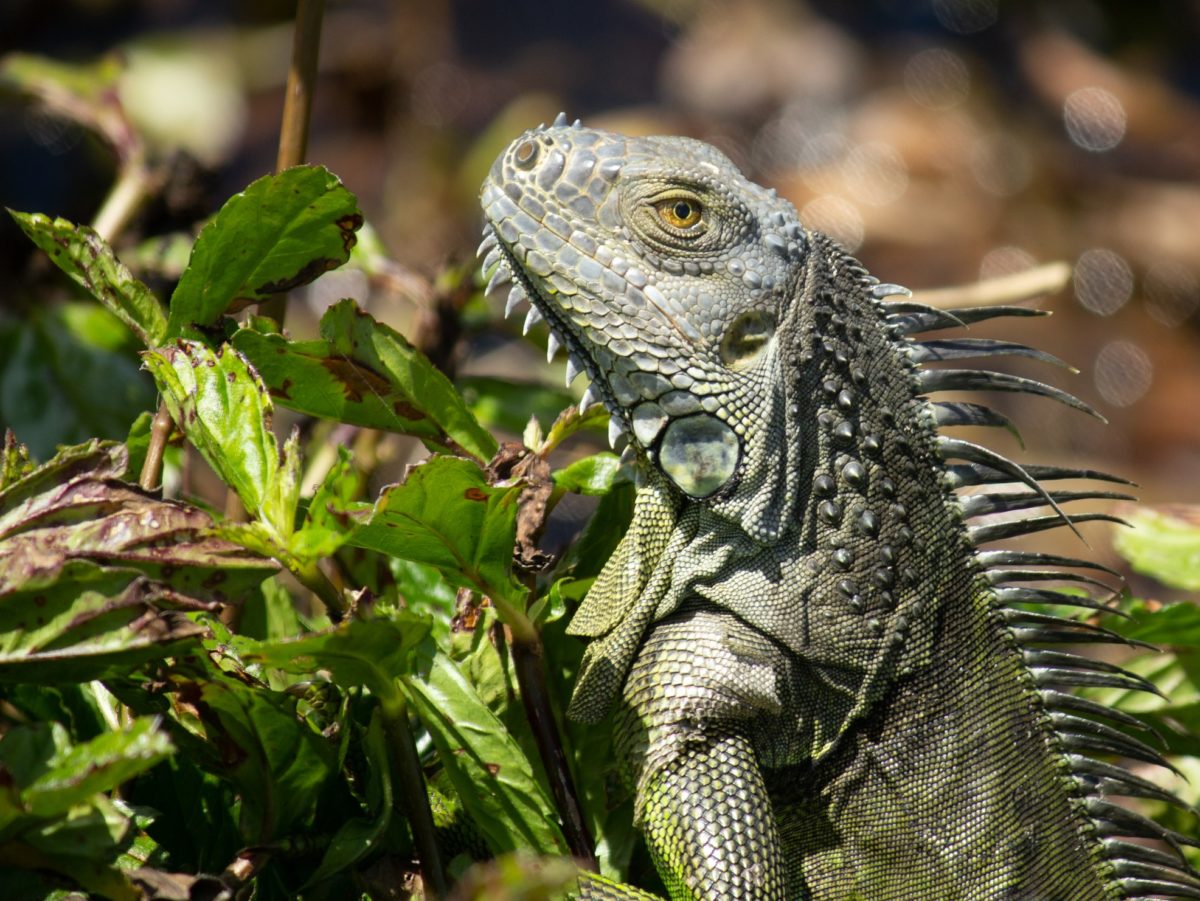
The intense cold has iguanas falling out of trees.
Here’s a biology lesson for you: cold-blooded animals like reptiles need outside sources of heat in order to survive and move. When exposed to intense cold, their bodies automatically go into a hibernation state in order to preserve themselves. This is why you don’t see lizards outside in the winter; they’re all hibernating. This is less of a problem for them in consistently warmer locales like Florida, but even Florida isn’t immune to the bitter cold.
Florida is currently in the midst of a nasty cold snap, with local temperatures reaching lows of 25 degrees Fahrenheit. The local population of reptiles, particularly iguanas, have been climbing trees in an effort to get closer to the sun, but when the cold forces them to immobilize, the wind may blow them out of their perches and onto peoples’ heads. This is why, over the weekend, The National Weather Service Miami-South Florida issued a “falling iguana alert.”
“Iguanas are cold-blooded. They slow down or become immobile when temps drop into the 40s (4-9 Celsius). They may fall from trees, but they are not dead,” the service said on Twitter.
“Their bodies basically start to shut down where they lose their functions and so they are up in the trees on the branches sleeping and then because it gets so cold, they lose that ability to hang on and then they do fall out of trees a lot,” Palm Beach zoologist and reptile expert Stacey Cohen told local TV station WPBF.
Jan 30: A cold morning…not as cold as our friends to the north dealing with a blizzard…but we have our own lizards to worry about.
Did you really think with the coldest temperatures in over a decade we would not warn you about falling Iguanas? #Iguanas #flwx pic.twitter.com/ornSpetd6a
— NWS Miami (@NWSMiami) January 30, 2022
“Cold is a very, very life-threatening thing for them because they are from parts of Central and South America close to the equator where it always stays very warm,” she added.
Thankfully, the cold is supposed to subside in the next couple of days, and any immobilized iguanas are expected to make a full recovery. If you’re out walking and spot a paralyzed iguana on the street, though, it wouldn’t hurt to move them somewhere safe until they can warm up.


